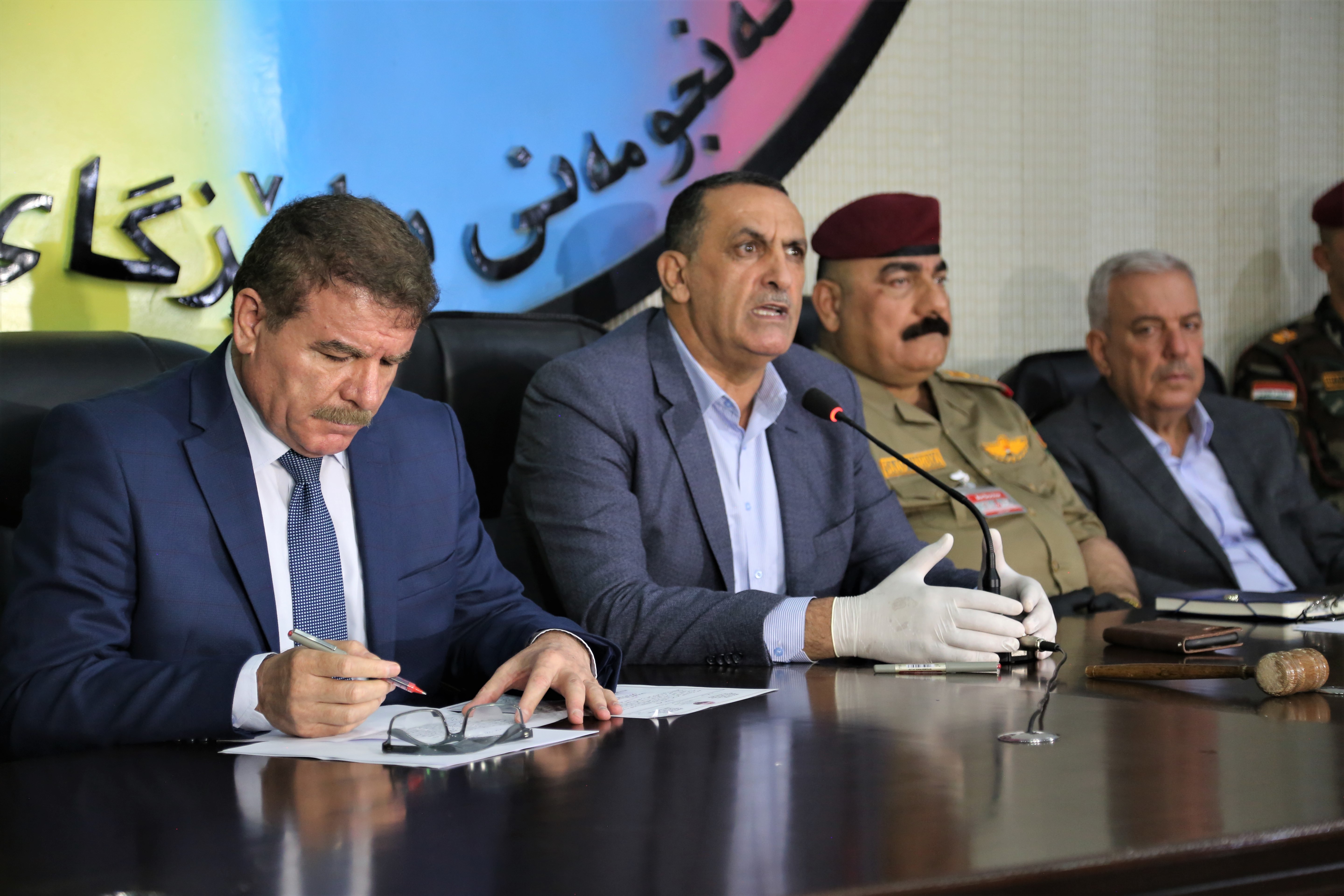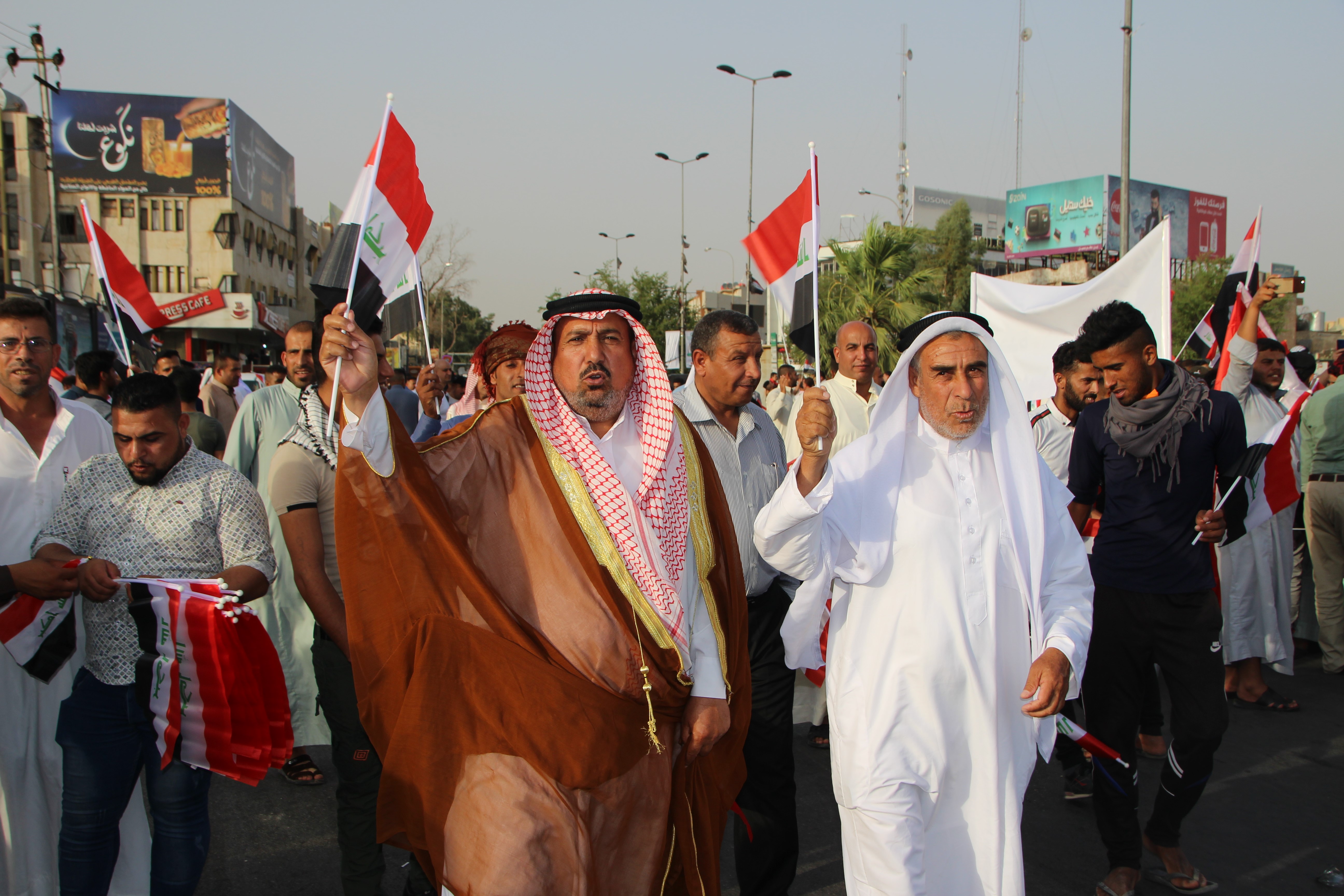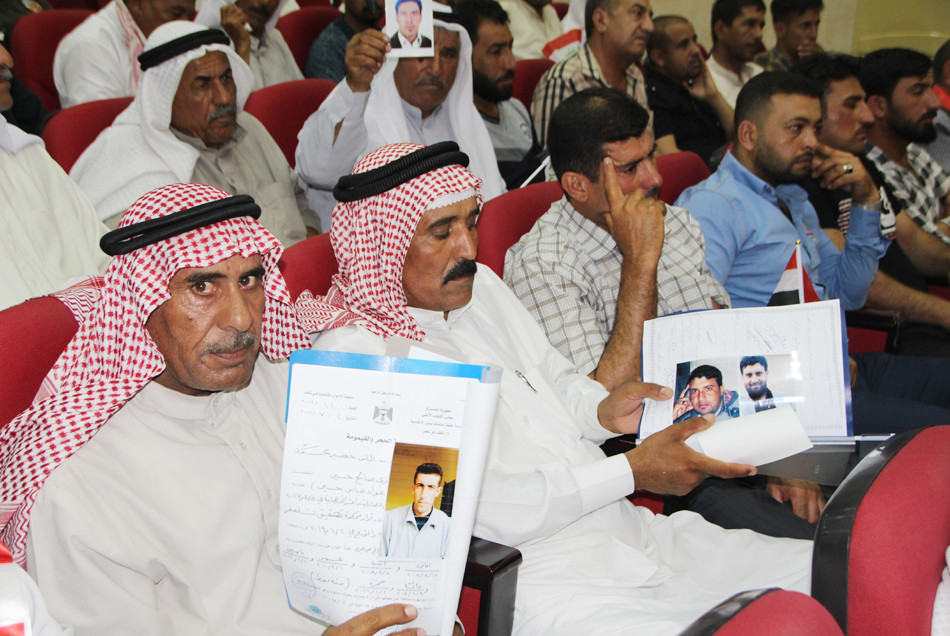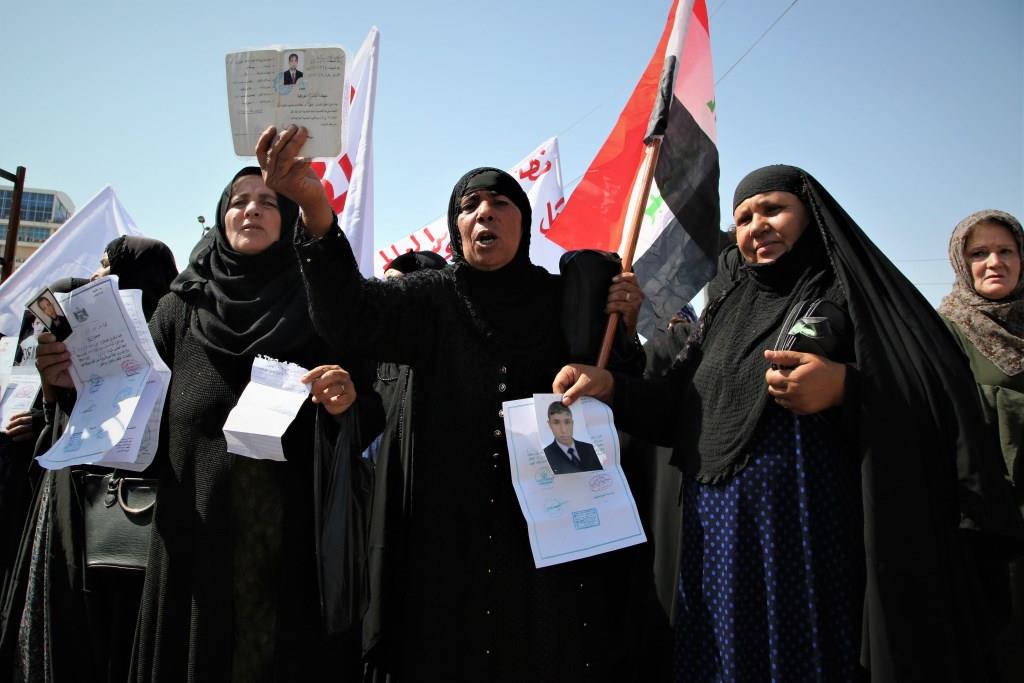The decision to transfer 176 detainees from Sulaimaniyah to Kirkuk, who “were arrested on charges of terrorism”, was made by the co-leaders of the Patriotic Union of Kurdistan (PUK), and the Iraqi president, Barham Salh, was informed about it. The suspects were detained in Maaskar Salam prison, 90 percent of whom are from Kirkuk and a certain number of them were arrested during their confrontations with the Peshmerga forces.
The transfer raised the concerns of the Kurdistan Regional Government (KRG) and the Kurdistan Democratic Union (KDP), while a few days before the events of October 16, 2017, “tens of detainees accused of terrorism were transferred from Erbil to Kirkuk,” Ismail Hadidi, an advisor to Iraqi President, told KirkukNow. However, “there are still tens of Arabs of Kirkuk in the prisons of Erbil.”
Who are the detainees?
On May 21, the detainees were transferred to Kirkuk, who were arrested on charges of terrorism for their “affiliation with the Islamic State groups (IS)” from 2014 to 2017, when the Kurdish authorities had control over the disputed areas, including the city of Kirkuk.
Nazm Shamari, the deputy head of the United Arab Front (AUF), consisted of numerous Arab political parties and tribes, told KirkukNow that, “some of the detainees were arrested during the war of IS and the others were arrested after 2003 by the Kurdish parties…. We want those who are innocent to be freed, and those who have people’s blood on their hands to be tried and punished.”

Joint press conference of Rakan al-Jabouri, Mohammed Othman, and Saad Harbiya, May 19, 2020. Photo: Karwan Salehi
KirkukNow has obtained the names of the detainees who were transferred to Kirkuk, showing that 90 percent of them are from Kirkuk, and majority of that 90 percent are from the Hawija district and its surrounding sub-districts in south and south-western Kirkuk.
Hadidi, who was involved in the agreement between the PUK and local government in Kirkuk to transfer the detainees, told KirkukNow that, “some of the detainees are only suspects, and a number of the them were arrested when they confronted the Peshmerga and the other security forces.”
“Some of them came to Kirkuk along with the displaced people, and later they were arrested on charges of terrorism.”
Hadidi reiterated that that the detainees were held in the Maaskar Salam jail, not in the Susi jail in Sulaimaniyah, which is one of the jails that belongs to the federal government.
“Those who are imprisoned in Susi have been tried and their cases are registered.”
Shamari also commented on that and said, “if they had been held in the Susi jail, then the federal government would have had information on them, but they were detained by political parties and their fates were unknown.”
Who made the decision to transfer the detainees?
The transfer of the detainees resulted from an agreement between the PUK and local government in Kirkuk, which both the Iraqi President Barham Salh and Prime Minister Mustafa al-Kadhimi were aware of.

Kirkuk, Arab tribes protest against Kurdish parties' agreement to appoint a Kurd as Kirkuk's new governor, 2019. Photo: Karwan Salehi
Mohammed Othman, head of the PUK headquarter in Kirkuk, in press conference on May 19, said that, after we were advised by the PUK co-leaders to revise the cases of those detained by the PUK during the war of Daesh (or the Islamic State), we decided to hand the detainees over to the federal government.”
“We will try to solve the problems that have emerged earlier and open a new page,” Othman added, “we will hand over the detainees to Kirkuk’s Operations Command. From now on (May 19) they will be responsible for the cases.”
Hadidi, who was involved in the transfer as the representative of the Iraqi president, said, “the proposal of al-Kadihimi’s cabinet mentions that the fate of all detainees and missing people have to be determined, not only in the Kurdistan Region, but across Iraq. This is part of his cabinet.”
“Kurdistan Democratic Party has also transferred tens of detainees to Kirkuk”
The ministry of interior of the KRG, on May 21, issued a statement, saying that the ministry is not aware of the transfer of those people arrested on charges of terrorism.
In the meantime, the leadership council of the KDP in Kirkuk, in a statement, claimed they were unaware of the detainees held by the PUK and accused the party of having secret jails.
The KDP accuse the PUK of having secret jails, while the KDP is also accused of holding detainees. The KDP have held tens of Arab detainees and before October 16, 2017, it handed over 50 detainees to local government in Kirkuk, Hadidi revealed.

Hadidi told KirkukNow that, “the step PUK took to return the detainees is courageous, we hope that the KDP will take the same step because it has held detainees. Before October 16, 2017, due to individual efforts, they (KDP) transferred 50 detainees to Kirkuk.”
Shamari called for the avoidance of the use of the detainees cases as a bargaining tool make political agreements on the positions of local administration. “They are human rights cases, we have persons who have been detained by the Kurdish parties for 17 years and their fates remain unknown.”
Also, Hadidi added that the resolving the cases are very important to the Iraqi government, which would strengthen cooperation and governance across Iraq.
The Arab parties in 2019 revealed names of a thousand missing people and accused the Asaysh forces of the PUK and KDP of detaining them. Since then, the Iraqi government, Hadidi said, “is in close contacts with the ministry of Peshmerga and interior of the KRG” to transfer them to Kirkuk.





